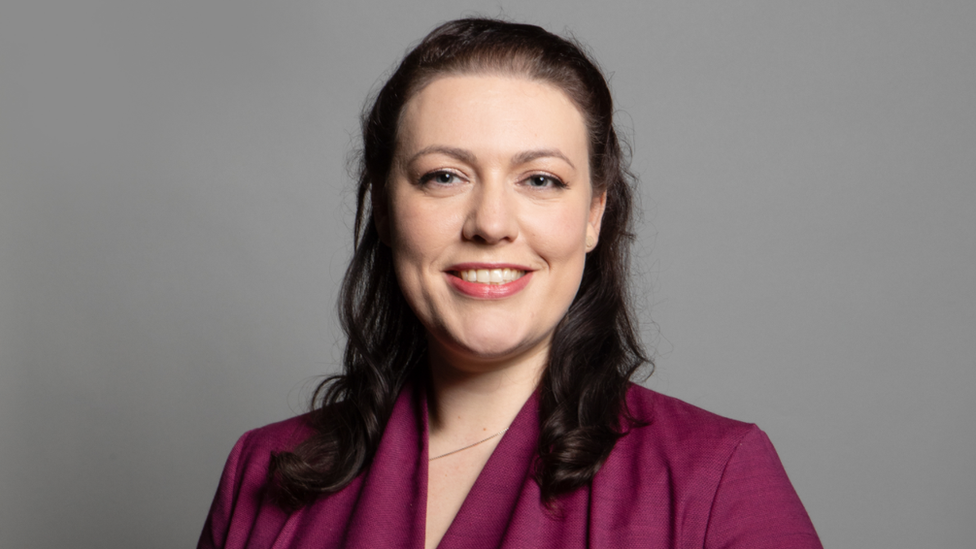MPs should not bring babies into Commons chamber, review says
- Published
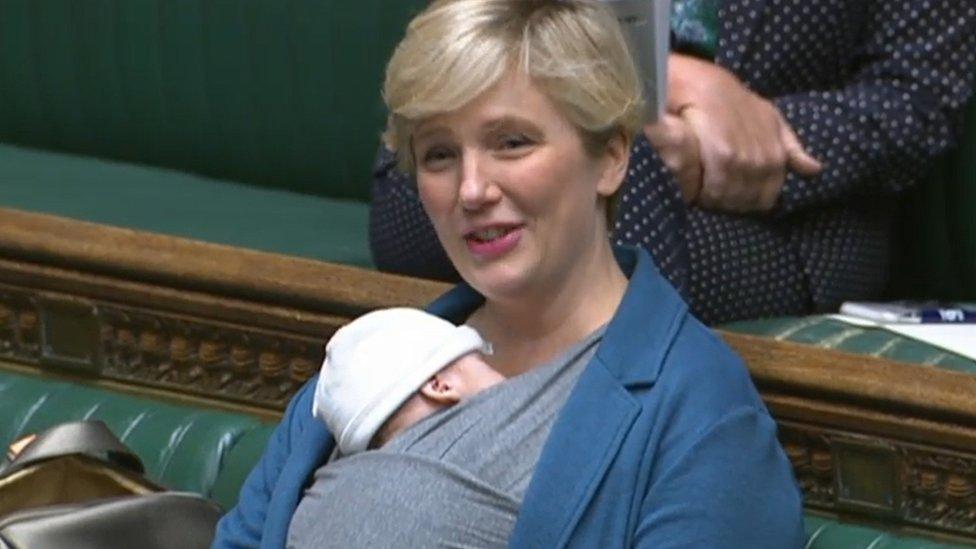
Stella Creasy sat in the Commons chamber with her son in September 2021
MPs should not bring their babies into the Commons chamber, a cross-party committee has said.
Commons Speaker Sir Lindsay Hoyle asked the Procedure Committee to review the rules, after Labour's Stella Creasy was told in November 2021 she could not have her three-month-old son with her.
The review concluded the "long-standing practice" of barring babies from Commons debates should remain in place.
But it added some discretion should be exercised "sparingly".
Ms Creasy expressed her disappointment in the findings. She had previously said it should be possible for "parenting and politics possible to mix".
"This committee didn't speak to a single person outside Parliament, despite many of us encouraging them to do so," she said.
"So I'm not surprised they don't recognise who is put off Parliament by its antiquated rules. Change will only come when we start listening to those outside the status quo."
Conservative Karen Bradley, who chairs the committee, told MPs on Thursday "people didn't think this was a place that was suitable for children".
"Members wanted to be able to spend time with that new person and adjusting to being a new parent, and didn't want to feel any obligation to come here with a child because that was something that was becoming the norm."
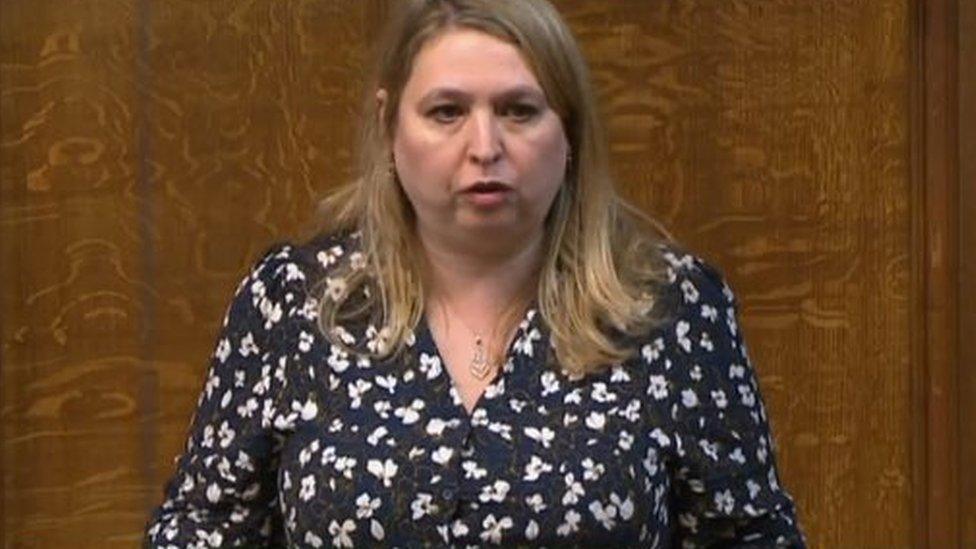
Karen Bradley outlined the Procedure Committee's findings
But she added babies could still be brought into the Commons when this was required "in exceptional circumstances", at the discretion of the chair and when agreed in advance.
The issue was raised last November when Ms Creasy brought her young son into a debate in Westminster Hall, which is part of the Houses of Parliament.
The Labour MP said she had taken her son and, before him, her daughter into the Commons chamber.
But she was emailed by Commons authorities telling her rules prohibited bringing children to debates.
The Procedures Committee has concluded this ban should continue if the MP involved wants to "observe, initiate, speak or intervene in proceedings".
However, it added that chairs would "retain a degree of de facto discretion which should be exercised sparingly - the firm expectation should remain that members do not participate in proceedings while caring for a baby".
When the review was ordered, Conservative MP Alicia Kearns argued the Commons was "no place" for a baby.
"In no professional workplace would you feed your baby in a meeting with your chief executive, or in a pitch to new clients, or on a stage in front of shareholders."
The Rutland and Melton MP - who announced the birth of her second child in January 2021 - told the Commons on Thursday she was concerned that the discretion of the chair on this issue might be abused.
She said "the pressure I've come under during this period has been quite strong, and I fear that chairs of committees might feel that they have been forced to allow babies".
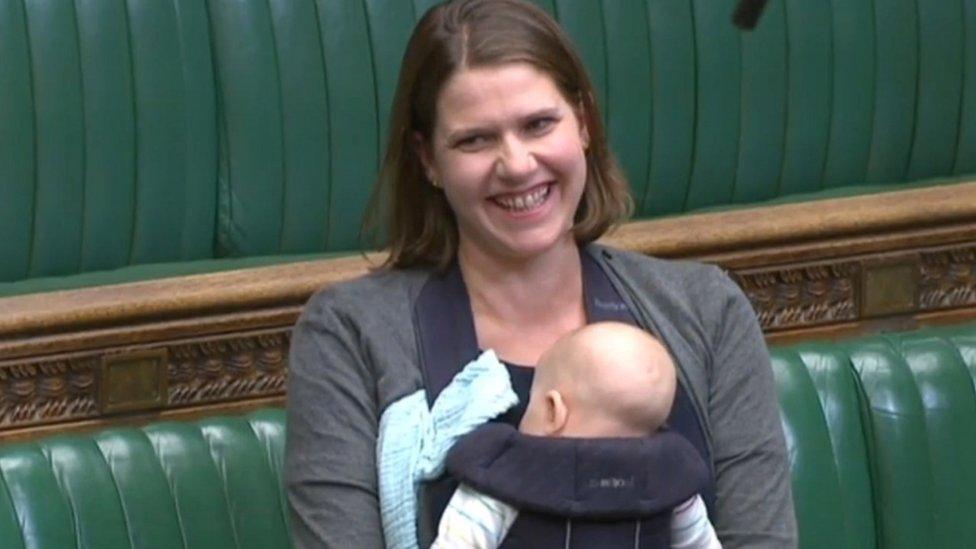
Former MP Jo Swinson is believed to have been the first MP to cradle a baby during a Commons debate in 2018
However the SNP's Kirsten Oswald said she feared retaining the guidance could lead to some people from diverse backgrounds or younger people being excluded from becoming MPs.
Only Stella Creasy and Alicia Kearns spoke to the Procedures Committee about the rules on babies.
Ms Bradley acknowledged that the atmosphere surrounding the debate on social media had been "toxic". The issues needed to be discussed in "reasonable circumstances", she said.
In a BBC interview, Brexit Opportunities Minister Jacob Rees-Mogg said he was "sympathetic" to MPs wanting to be allowed to take their babies into the Commons.
"The House of Commons is a workplace, so I think you should judge each individual circumstance by itself and by the needs that there are. Families do have difficult questions to deal with in relation to childcare."
Former Liberal Democrat leader Jo Swinson is thought to have been the first MP to take her baby into the chamber during a debate, when she cradled her son in the Commons in 2018.
The committee has also called for the extension of proxy voting from MPs on parental leave to those suffering from "serious long-term illness".
Ms Bradley called for a debate to be held on this issue before the summer recess.
- Published25 November 2021
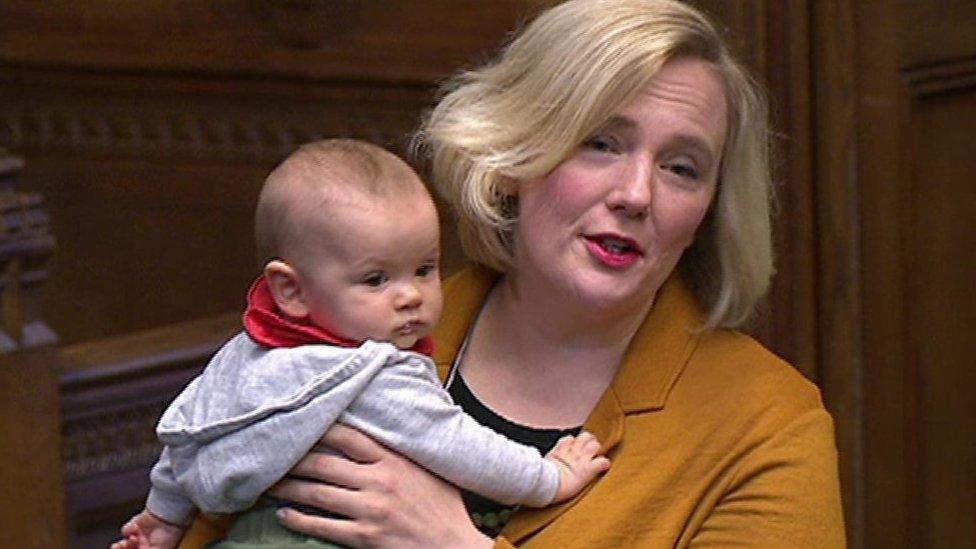
- Published24 November 2021

- Published29 December 2021
